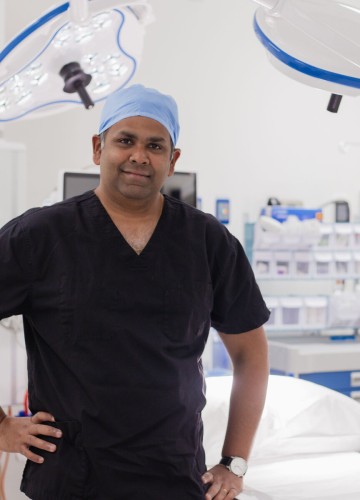Home / Procedures & Investigations / Weight Loss Surgery
Weight Loss Surgery
Weight loss surgery, also known as bariatric surgery, is an evidence-based treatment for people living with obesity and related health conditions. It works by modifying the digestive system to reduce hunger, limit food intake, and, in some procedures, alter the way nutrients are absorbed.

Bariatric surgery is not a cosmetic procedure or a quick fix. It is a powerful tool that supports long-term health improvements alongside structured lifestyle changes.
Many people who undergo surgery experience significant weight loss, improved mobility, and remission or improvement of conditions such as type 2 diabetes, high blood pressure, sleep apnoea, and joint pain.
Weight loss surgery is just one part of a broader programme of care.
At Intus, you are supported by a dedicated, integrated team - including a bariatric surgeon, specialist nurse, dietitian, psychologist, and physiotherapist - who work together to guide you through every stage of your journey.
What's Involved in Weight Loss Surgery?
Bariatric surgery is typically performed using keyhole (laparoscopic) techniques under general anaesthetic. Most people stay in hospital for 1–2 nights and return to light activity within 1–2 weeks.
Your team will help you decide which procedure is most suitable for your body, health goals, and eating habits.
Your weight loss journey doesn’t end with surgery - it begins with it. With the right support, education, and commitment, bariatric surgery can help you reclaim your health, improve quality of life, and build lasting confidence.
Sleeve Gastrectomy
This involves removing around 80% of the stomach, leaving a narrow, tube-shaped “sleeve.” This reduces the capacity of the stomach and lowers levels of the hunger hormone ghrelin, helping you feel full with much smaller meals. It does not involve any rerouting of the intestines and is a permanent, irreversible procedure.
Roux-en-Y Gastric Bypass
In this procedure, a small pouch is created from the upper stomach and connected to a section of the small intestine. Food bypasses most of the stomach and part of the bowel. This surgery supports weight loss by reducing appetite, meal size, and altering gut hormone responses. It is especially effective for people with reflux, type 2 diabetes, or a higher BMI.
One Anastomosis Gastric Bypass (OAGB / Mini Bypass)
This variation of the gastric bypass involves a single join between the stomach pouch and small bowel. It combines restriction with a degree of malabsorption, promoting strong weight loss results. It may be more suitable for certain patients but carries a slightly increased risk of bile reflux, which will be discussed during consultation.
